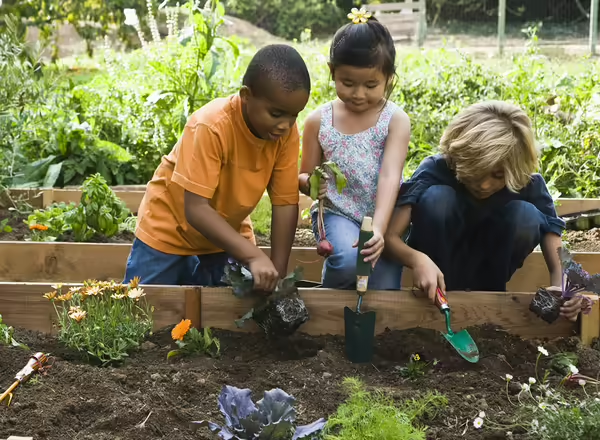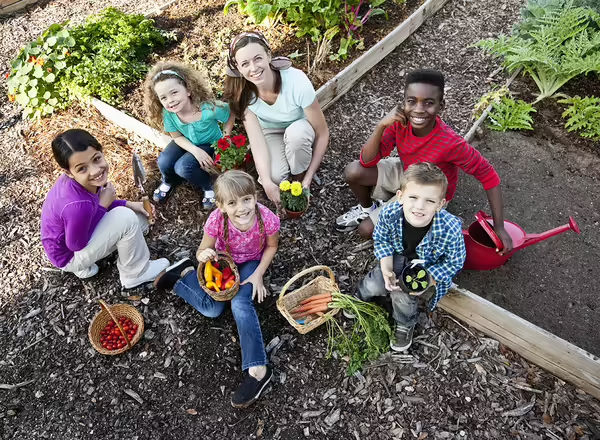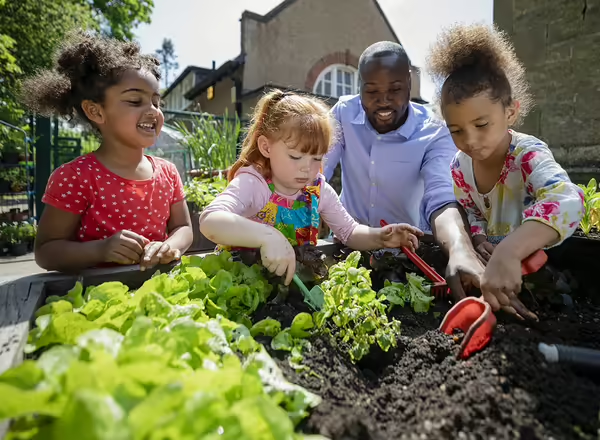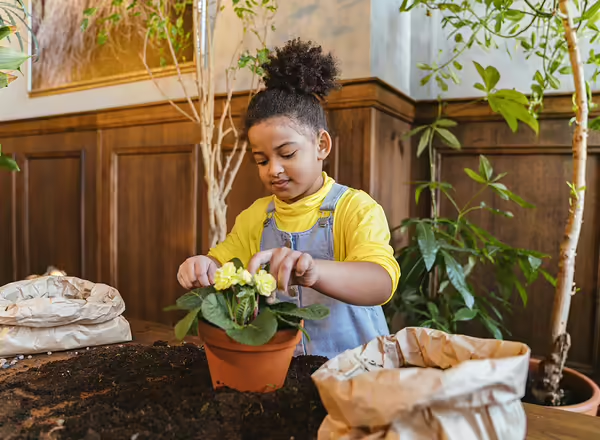Get started on your school garden journey
School gardens offer so much. Research shows that school garden programs offer students hands-on, experiential learning, benefiting youth and their communities in many different ways: academics, social and emotional health, healthy lifestyles and nutrition, and environmental stewardship.
Imagine students digging into soil to explore its makeup, observing pollination or the life cycle of plants firsthand, or simply taking inspiration from the garden's green space while writing an essay or painting a picture.
Dig in and start growing.

Students gain practical, hands-on learning opportunities through gardening activities incorporated in a wide variety of disciplines, including science, social studies, math, language arts, fine arts, and nutrition. Students that participated in school gardening activities scored significantly higher on fifth-grade standardized science tests compared to the students who had no garden activities incorporated into the curriculum.

Experimenting in the garden can offer students a place to experience delayed gratification, independence, and motivation to succeed. In a study conducted on the effects of a school garden program offered to third, fourth, and fifth-grade students in Texas, the students increased their overall life skills (teamwork, self-understanding, leadership, decision-making skills, communication skills, and volunteerism) after one year in the program.

By growing fruits and vegetables, children's food attitudes and habits can change positively. They are more likely to eat vegetables they have grown themselves and share those preferences with others. While weeding, digging, and doing other manual labor projects in the school garden, students are getting exercise while learning a useful skill.

Building a connection with nature and promoting environmental stewardship in youth is crucial for the future of our world.
Through garden curriculum, students had an increased understanding of ecology, inter-connectedness with nature, and responsibility to care for the environment. These hands-on activities gave the students an opportunity to actively learn and experiment.